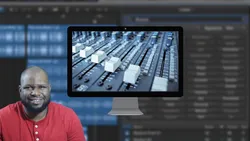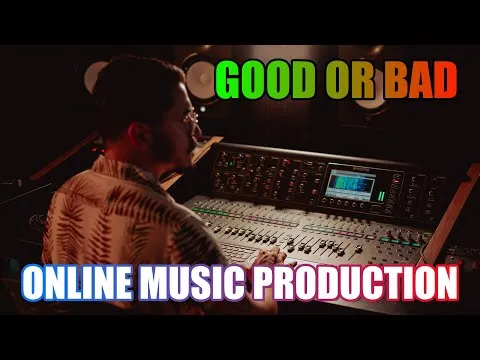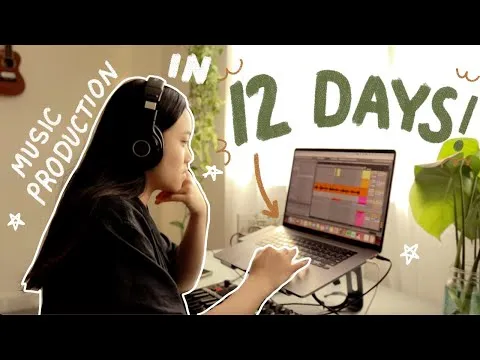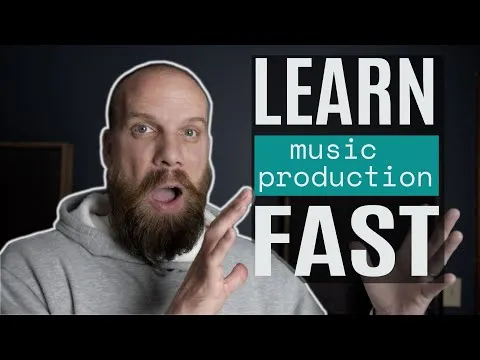
Logic Pro X Mixing Course For Beat Makers - Module 1 "The Pre Mixing Process" 
This course is designed to help beat makers learn the pre-mixing process in Logic Pro X. It covers four modules, teaching production techniques to make the mixing process easier. Participants will gain an understanding of the fundamentals of mixing, such as EQ, compression, and reverb, as well as gain insight into the creative aspects of mixing. With this course, beat makers will be able to create professional sounding mixes. ▼
ADVERTISEMENT
Course Feature
![]() Cost:
Cost:
Free Trial
![]() Provider:
Provider:
Skillshare
![]() Certificate:
Certificate:
Paid Certification
![]() Language:
Language:
English
![]() Start Date:
Start Date:
On-Demand
Course Overview
❗The content presented here is sourced directly from Skillshare platform. For comprehensive course details, including enrollment information, simply click on the 'Go to class' link on our website.
Updated in [March 06th, 2023]
This Logic Pro X Mixing Course For Beat Makers is designed to help producers of all levels improve their mixing skills. Module 1, "The Pre Mixing Process", covers topics such as selecting the right sounds, organization, leveling and equalization, compression, adding effects, panning, automation, and adding final touches to the mix. The course also comes with downloadable source files to a beat that will be mixed together in Logic Pro X step by step. Additionally, the course provides mastering short cuts to boost the overall volume of beats. With this course, producers will be able to make their beats sound more professional and understand why certain sounds work well together and why others don't.
[Applications]
Upon completion of this course, students should be able to apply the techniques they have learned to their own music production process. They should be able to use Logic Pro X's stock plugins to mix their beats and create a professional sounding mix. Additionally, they should be able to use the tips and tricks they have learned to make their beats sound more professional and to make the mixing process easier.
[Career Paths]
The career paths recommended to learners of this course are Audio Engineer, Music Producer, and Sound Designer.
Audio Engineer: Audio engineers are responsible for recording, mixing, and mastering audio for a variety of projects, such as music, films, and podcasts. They use a variety of tools and techniques to ensure that the audio is of the highest quality. Audio engineers must have a strong understanding of sound engineering principles and be able to work with a variety of audio equipment. The demand for audio engineers is growing as more people are creating audio content for various platforms.
Music Producer: Music producers are responsible for overseeing the production of music, from the initial recording process to the final mix. They work with artists to create the best possible sound for their music. Music producers must have a strong understanding of music theory and production techniques, as well as the ability to work with a variety of audio equipment. The demand for music producers is growing as more people are creating music for various platforms.
Sound Designer: Sound designers are responsible for creating sound effects and soundscapes for a variety of projects, such as films, video games, and podcasts. They use a variety of tools and techniques to create unique and immersive soundscapes. Sound designers must have a strong understanding of sound design principles and be able to work with a variety of audio equipment. The demand for sound designers is growing as more people are creating audio content for various platforms.
[Education Paths]
Recommended degree paths for this course include:
1. Audio Engineering: Audio engineering is a field of study that focuses on the production and manipulation of sound. It involves the use of recording, mixing, and mastering techniques to create a desired sound. Audio engineers use a variety of tools and techniques to create the desired sound, including microphones, mixers, processors, and software. Audio engineering is a rapidly growing field, and there are many opportunities for those who pursue a degree in this field.
2. Music Production: Music production is a field of study that focuses on the creation of music. It involves the use of recording, mixing, and mastering techniques to create a desired sound. Music producers use a variety of tools and techniques to create the desired sound, including microphones, mixers, processors, and software. Music production is a rapidly growing field, and there are many opportunities for those who pursue a degree in this field.
3. Music Technology: Music technology is a field of study that focuses on the use of technology to create and manipulate music. It involves the use of recording, mixing, and mastering techniques to create a desired sound. Music technologists use a variety of tools and techniques to create the desired sound, including microphones, mixers, processors, and software. Music technology is a rapidly growing field, and there are many opportunities for those who pursue a degree in this field.
4. Sound Design: Sound design is a field of study that focuses on the creation and manipulation of sound. It involves the use of recording, mixing, and mastering techniques to create a desired sound. Sound designers use a variety of tools and techniques to create the desired sound, including microphones, mixers, processors, and software. Sound design is a rapidly growing field, and there are many opportunities for those who pursue a degree in this field.
Pros & Cons

Exceeded expectations, engaging and informative, clear and easy to digest, simple and useful tips, improved workflow.

None mentioned.
Course Provider

Provider Skillshare's Stats at AZClass
Discussion and Reviews
0.0 (Based on 0 reviews)
Explore Similar Online Courses

The Business of Mining

Hyperledger Besu Essentials: Creating a Private Blockchain Network

Python for Informatics: Exploring Information

Social Network Analysis

Introduction to Systematic Review and Meta-Analysis

The Analytics Edge

DCO042 - Python For Informatics

Causal Diagrams: Draw Your Assumptions Before Your Conclusions

Whole genome sequencing of bacterial genomes - tools and applications

online music production course good or bad

I Learn How to Produce Music in 12 DAYS!


Start your review of Logic Pro X Mixing Course For Beat Makers - Module 1 "The Pre Mixing Process"